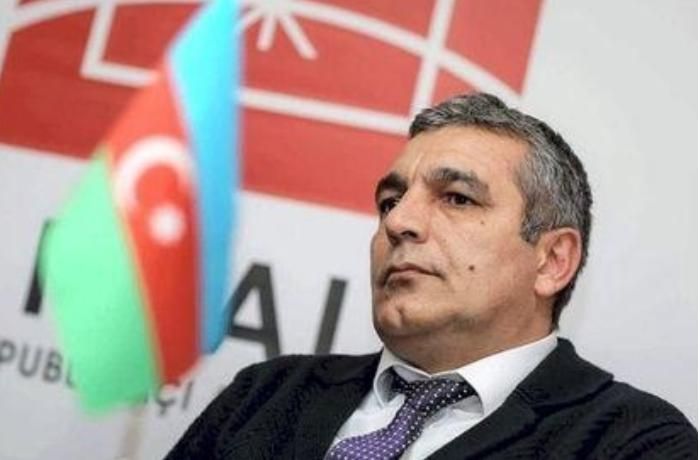|
|
TODAY.AZ / Business
SOCAR's proactive role in shaping global climate agenda ahead of COP29 [EXCLUSIVE]
11 July 2024 [08:30] - TODAY.AZ

In a pivotal moment leading up to COP29, the State Oil Company of Azerbaijan (SOCAR) is poised to play a proactive role in shaping the global climate agenda. With a commitment to fostering collaboration among national and international oil companies, SOCAR plans to host influential events and panels aimed at advancing climate mitigation efforts.
Afgan Isayev, Vice President of SOCAR, emphasized the company’s strategic partnerships and ambitious projects designed to secure a sustainable future for generations to come. These initiatives include substantial investments in renewable energy, such as solar and wind projects, alongside pioneering ventures in offshore wind energy for green hydrogen production.
Looking ahead to 2035, SOCAR envisions a transformative journey from a traditional oil and gas entity to a diversified energy leader, aligning its emissions profile with global industry standards to underscore its dedication to decarbonization. As SOCAR prepares to showcase its forward-thinking initiatives at COP29, its commitment signals a pivotal moment in the global energy landscape.
Azernews correspondent discussed with economist Natig Jafarli to delve more into SOCAR's goals and prospects.

Q. Dear Natig, SOCAR emphasizes cooperation with national and international oil companies through strategic partnerships. How can these partnerships contribute to SOCAR's sustainability goals and future energy leadership in the region? What are the economic benefits of such collaborations?
A. If we examine SOCAR's involvement in regional projects, it primarily makes significant investments in Georgia and Turkiye. It also plays a decisive role in various aspects. For instance, SOCAR owns the gas distribution company in Georgia, which grants it certain advantages such as the ability to set pricing policies, and enhances its strategic importance by controlling distribution networks for population and business structures. In Turkiye, SOCAR holds substantial stakes and investments in the Star Refinery and Petkim plants, bolstering its influence in selling petrochemical products across the nearby region.
These examples demonstrate SOCAR's successful outcomes in its relationships with Georgia and Turkiye. To further expand its regional influence, prioritizing additional projects is crucial. Ongoing negotiations with Central Asian Republics, including talks between Uzbekistan and Turkmenistan, illustrate SOCAR's efforts to secure a significant stake in these regions. Additionally, Pakistan has extended a substantial offer to build an oil separation plant with SOCAR's involvement, a current topic under discussion.
Strategically, SOCAR's ownership in regional countries and participation in large-scale projects give it significant advantages. However, sustaining these advantages requires substantial investments. SOCAR may encounter challenges in this regard, particularly due to the gradual decrease in Azerbaijan's oil production and output, potentially impacting SOCAR's current income. Nevertheless, it is foreseeable that SOCAR will secure additional funds for future large-scale investments.
Q. SOCAR aims to play a pivotal role in shaping the future energy landscape of the region. What are the economic implications of this ambition for Azerbaijan and its neighboring countries? How might SOCAR's strategic position influence regional economic development and energy security?
A. SOCAR Georgia, a subsidiary of SOCAR, is the largest taxpayer in Georgia among companies. Considering the region, SOCAR's participation in the Georgian economy has yielded successful outcomes for the country. SOCAR owns one of the largest networks of gas stations and a gas distribution company in Georgia. As previously mentioned, "SOCAR Georgia" being the largest taxpayer is a significant matter for the Georgian budget, and SOCAR is also a leading entity in Georgia in terms of job creation. Therefore, at least in the case of Georgia, SOCAR plays a substantial role in both the economic development and energy security of the region.
Q. Given SOCAR's sustainability and decarbonization initiatives, how might these efforts impact Azerbaijan's economy in the long term? What economic opportunities can be created by leading in sustainable energy practices, both domestically and internationally?
A. SOCAR is a traditional oil and gas company with roots dating back to the Soviet era. The global trend towards decarbonization and transitioning to alternative energy sources poses new challenges and opportunities for SOCAR. While aligning with this trend is crucial, it also presents certain hurdles and potential benefits.
The primary challenge lies in the substantial investments required for the transition to renewable energy. For instance, bp recently announced a strategic roadmap aiming to become a renewable energy company by 2050, necessitating approximately $100 billion in additional investments. If SOCAR intends to adopt a strategy focused on renewable and alternative energy production, similar additional funds and investments will be essential.
However, Azerbaijan possesses significant potential in solar and wind energy, thanks to its climatic conditions, geographical location, and the wind resources of the Caspian Sea. Exploiting this potential will require substantial investments and financial resources.
In summary, while SOCAR faces financial challenges in transitioning towards renewable energy, Azerbaijan's natural advantages in solar and wind energy offer promising opportunities for development with the necessary investments.
Q. With global shifts towards renewable energy and decarbonization, how can SOCAR manage potential economic disruptions and opportunities in the energy market? What strategic economic measures should SOCAR consider to maintain competitiveness and leadership in the evolving global energy landscape?
A. There are both realities and myths surrounding energy transitions. For instance, back in 2010, predictions suggested that by 2020, the world would shift to large-scale renewable energy, significantly reducing demand for internal combustion engines and gasoline. However, this hasn't materialized. In 2010, global daily oil consumption stood at 92-93 million barrels, but today it has risen to 102 million barrels. Such forecasts don't always align with reality, indicating that the importance of oil and gas remains significant. A decade or more ago, there was a theory that oil and gas prices would gradually decline, yet global energy demand continues to rise. According to reports from the International Energy Agency, oil consumption worldwide is expected to surpass current levels by 2035-2040, potentially reaching 110-112 million barrels per day.
This underscores the ongoing necessity for SOCAR's expertise and operations in the oil and gas sector, which could yield even more successful outcomes in the future. Nonetheless, it's crucial not to ignore global trends. Many global oil companies are already exploring avenues to transition to renewable or green energy, making strategic investments. SOCAR also has such opportunities. For example, Azerbaijan, in partnership with Georgia, is involved in a major project with the European Union to transmit electricity generated from alternative sources to Europe via the Black Sea seabed. SOCAR holds a significant stake in this project, indicating its increasing role in Azerbaijan's aspirations to transition towards renewable green energy as its investments in this sector grow.
While it may be premature to completely shift away from traditional energy fields, given the projected growth in global oil and gas demand over the next 20-25 years, adapting to evolving global energy dynamics remains imperative.
URL: http://www.today.az/news/business/250517.html
 Print version
Print version
Connect with us. Get latest news and updates.
See Also
- 22 February 2026 [12:11]
Weekly review: Crude oil prices see mixed trends - 22 February 2026 [08:30]
Azerbaijan aligns with China’s Belt and Road strategy through Middle Corridor - 21 February 2026 [16:50]
Georgia sets symbolic transit fee for Azerbaijani oil shipments to Armenia - 21 February 2026 [13:22]
New Sumqay?t–Lachin bus route launches to serve citizens returning to liberated areas - 21 February 2026 [10:00]
Azerbaijan reduces motor gasoline production in January - 20 February 2026 [19:00]
Gran Tierra to begin Azerbaijan onshore exploration under new SOCAR agreement - 20 February 2026 [18:36]
SOCAR launches first fully electric vehicle charging station in South Caucasus - 19 February 2026 [13:04]
Canadian energy firm to launch oil exploration in northern Azerbaijan - 18 February 2026 [13:02]
bp’s long-term investments and social projects in Azerbaijan outlined - 17 February 2026 [15:11]
Azerbaijan delivers nearly 12 bcm of gas to Türkiye in 2025, boosting annual supplies
Most Popular
 Caspian at risk: Azerbaijan leads call for stronger regional cooperation
Caspian at risk: Azerbaijan leads call for stronger regional cooperation
 AI leaders gather in Delhi: What Azerbaijan can learn for its national strategy
AI leaders gather in Delhi: What Azerbaijan can learn for its national strategy
 Zelensky says he cannot trust Putin, insists Ukrainian people will decide peace
Zelensky says he cannot trust Putin, insists Ukrainian people will decide peace
 Turkiye seeks active role in Gaza reconstruction as Board of Peace meets
Turkiye seeks active role in Gaza reconstruction as Board of Peace meets
 National Library marks anniversary of acclaimed poet
National Library marks anniversary of acclaimed poet
 Former UK Prince Andrew arrested over Epstein files revelations
Former UK Prince Andrew arrested over Epstein files revelations
 Japan seeks peace treaty with Russia despite ongoing territorial dispute
Japan seeks peace treaty with Russia despite ongoing territorial dispute
